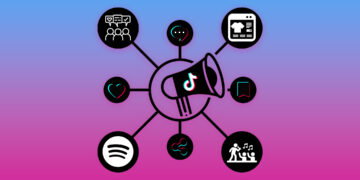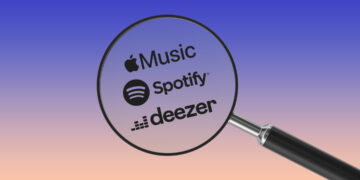Virtual concerts – they’ve come to stay

- Why virtual concerts will continue to exist even post-corona
- What the advantages of virtual shows are
- Why virtual concerts are comparable to live broadcasts of sports events
It’s becoming more and more apparent that virtual concerts are here to stay even after the pandemic. This post explains why that is and what advantages come with virtual shows as an addition to live concerts.
Many view virtual concerts only as a makeshift solution during the pandemic or ignore the topic altogether. But it has become increasingly apparent that this form of concert will continue to exist post-COVID, as well. Of course, they will never replace a live event, but there are good reasons why they will still be present as an addition.
Live industry revenues at rock bottom
The concert industry has essentially been brought to a screeching halt by the pandemic. Globally, revenues in the last year dropped by 75%. Virtual shows have become one of the ways in which to compensate for at least a part of the cancelled events. Based on one assessment, virtual concerts in 2020 have brought in $600 million already. This, despite the fact that up until now, only 9% of the potential audience have effectively watched a livestream.
A survey has shown that 80% of viewers were satisfied with the experience and that 74% were willing to pay for it. It’s become more and more clear that a new video format is emerging and taking root. We’re not talking about some dude anymore who plays guitar in his kitchen and streams it on Insta with mediocre sound quality, but instead professionally organized shows with ticketing and excellent sound quality.
The advantages of virtual concerts
Here are a few examples of why virtual concerts are still a worthwhile addition even when we can attend live concerts again:
- Hybrid shows: If a concert is sold out, you can sell additional tickets for the stream
- You can reach fans which are not in the area in which you’re playing
- With a virtual concert you can reach fans who are too young for the live event, can’t afford a ticket, or can’t leave the house that night
- As a promotional tool: A virtual concert can, for instance, give a little taste for the live tour
- The concert market is competitive: With virtual shows you can prove to bookers that you put up good concerts and can attract people
Virtual concerts are well on their way of becoming a part of the relationship between artist and fan. You can build a different type of connection than you can at live concerts by responding to questions from fans, for instance, or even letting them decide on a setlist.
Virtual concerts as a addition to live shows
One day virtual concerts might be comparable to live broadcasts of sporting events. Of course, it’s more fun to watch in the stadium, but you probably won’t travel to every single away game, and even when it comes to a home match, you might sometimes prefer to watch from your homely sofa instead.
The combination between live and virtual concerts allows artists to perform more regularly and to give fans more options – with regard to pricing, as well.
A first few festivals have already announced that they won’t be taking place in 2021 either. The renowned Montreux Jazz Festival recently announced that in future, too, they will opt for a hybrid model consisting of both live events and digital projects.
Every artist who so far has generated a part of their income through live shows should by now be thinking about ways to reach their fans virtually, as well.
How to set up virtual concerts and make money with them, you will learn in this post.











